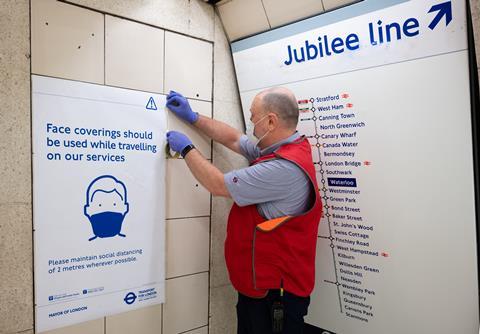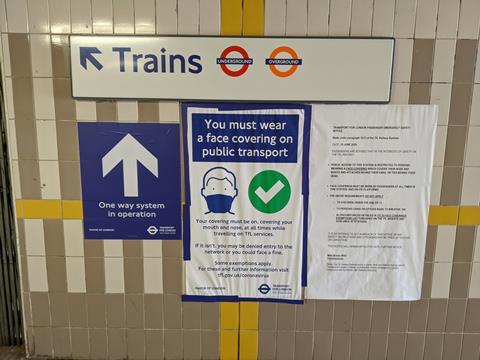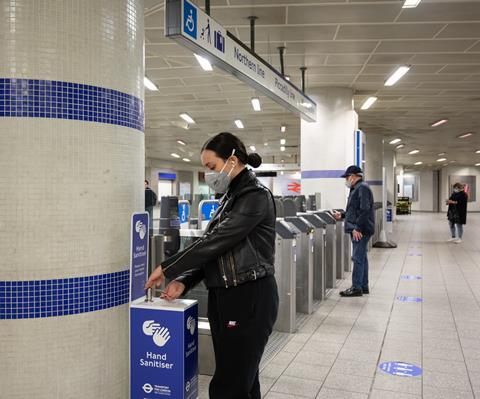
UK: The government and the Mayor of London have agreed a 10-day extension of Transport for London’s current funding deal, which was due to expire on May 18. The latest extension on the same terms comprises a payment of £65m with a top-up grant available based on actual passenger revenues.
In a written statement to parliament, Secretary of State for Transport Grant Shapps said the extension would ‘provide certainty while we finalise the terms of the next funding deal which will get TfL onto a more financially sustainable footing.’
In an e-mail to staff, Transport for London boss Andy Byford described negotiations with DfT as ‘constructive’.

Unlike many comparable transport authorities worldwide, TfL does not receive central government funding towards its day-to-day operating costs. As a result it is heavily dependent on fares income, which has plummeted during the coronavirus pandemic.
In May 2020 the government agreed a grant of £1·095bn and loan of £505m to support operations to October 17. Higher than anticipated ridership meant TfL’s actual shortfall was less than the £1·6bn total, so TfL and DfT agreed on October 16 that the package would be extended until October 31.
The next funding package covered the period from October 18 2020 to March 31 2021. This was subsequently extended until May 18 to cover the period of the elections for the Mayor of London, a post which was won by incumbent Sadiq Khan of the opposition Labour party.
Shapps insisted on May 18 that the government was ‘committed to supporting the running of essential services across the capital’, and had provided more than £3bn of emergency funding since the start of the pandemic. However, he said ‘support for London needs to be balanced with the national recovery and ensure fairness and value for money for the taxpayer.’
Calls for a long-term plan
Labour’s Shadow Transport Secretary Jim McMahon said the latest short-term agreement was ‘yet another papering-over-the-cracks approach, with punitive conditions attached’. He called for ‘a comprehensive transport plan to secure the networks people rely on as the ripples of this crisis continue to be felt.’

The TSSA trade union said TfL was normally reliant on fares for 72% of its income, which was ‘far higher than other global capital cities’. It said the organisation ‘desperately needs a robust, long-term funding settlement’ which would reduce this reliance on fares and recognise TfL’s ‘significant’ role in supporting the national economy.
‘The drip drip of short term funding has kept TfL going through the pandemic, but if continued it will be short-sighted short termism leading to stagnation and decline’, said TSSA General Secretary Manuel Cortes. ‘18 months of short-termism is costly; capital projects are on hold and decision making is debilitated; staff are stressed and passengers need certainty.’
General Secretary of the RMT union Mick Lynch agreed that ‘this continued uncertainty and reliance on short term fixes will simply hold back our economic recovery, causing lasting damage. We need the government to stop using London transport as a political football and guarantee it the long term funding it needs as we move out of lockdown.’



